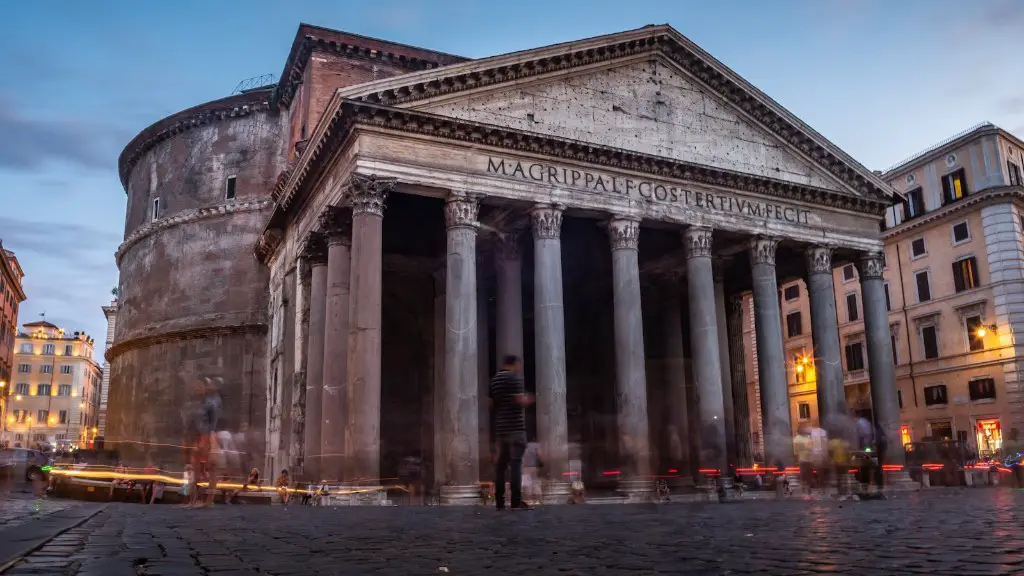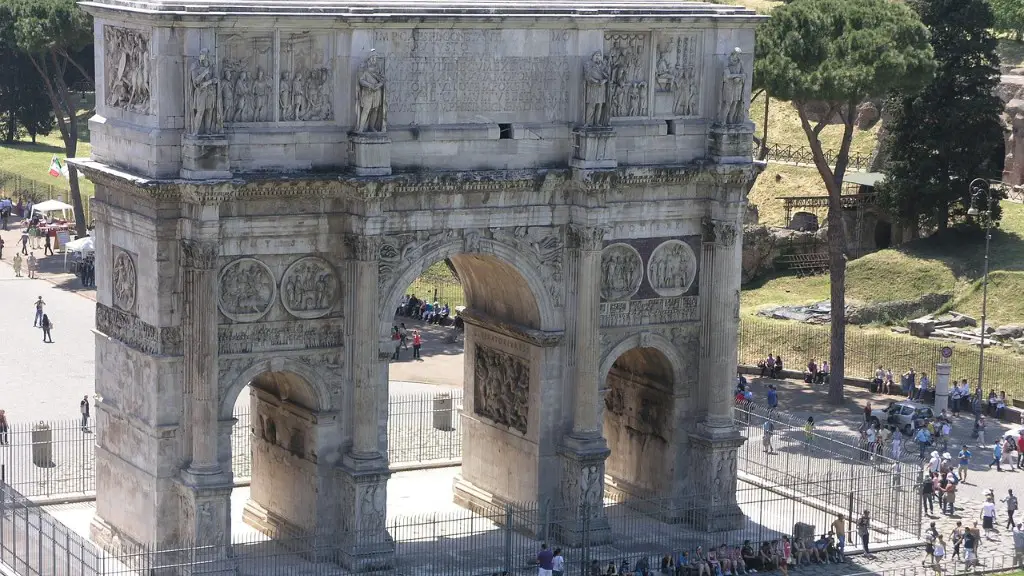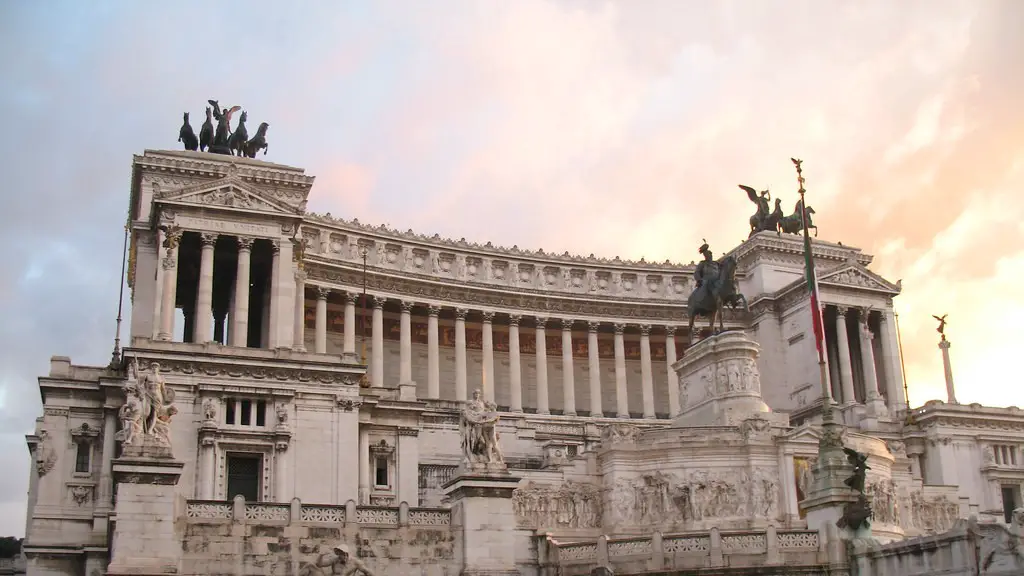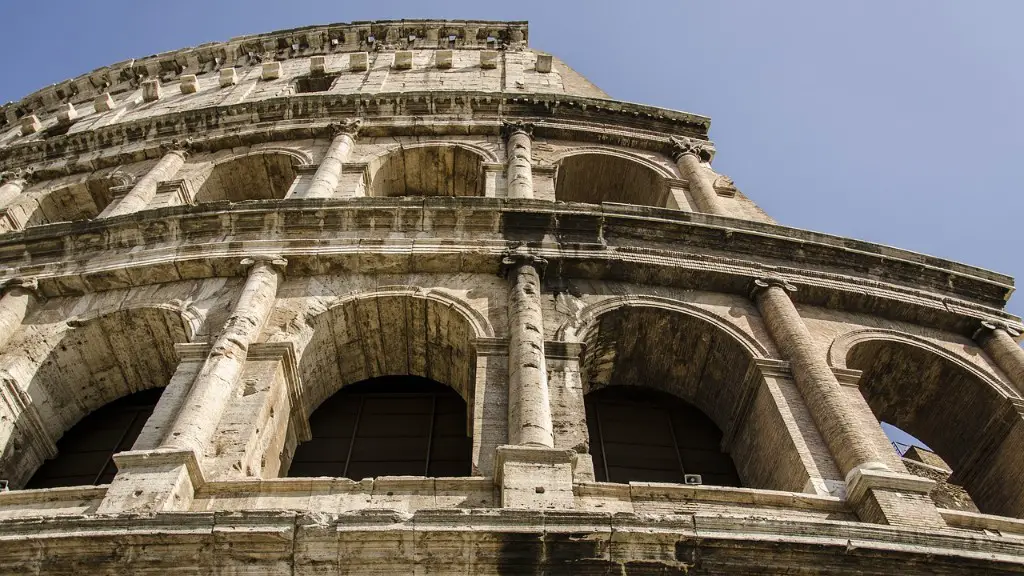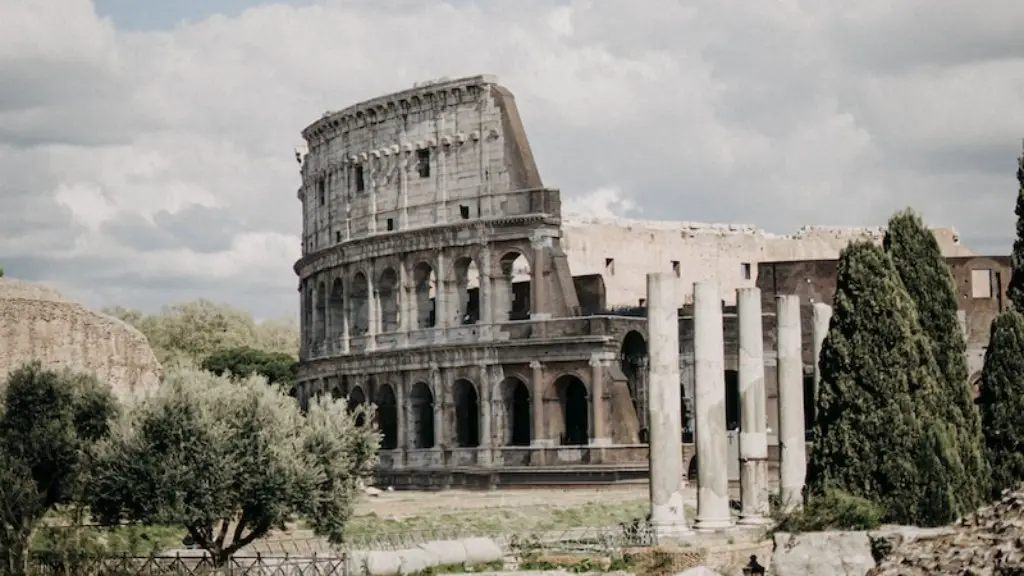The Greco-Roman world was one in which both cultures heavily influenced each other. Roman culture absorbed many elements from the Greeks, including their religion, art, and ways of government. Likewise, the Romans had a profound impact on the development of Greek culture.
Ancient Greece was a major influence on Ancient Rome. Rome was heavily influenced by the Greeks in terms of culture, art, architecture, and politics. The Roman Republic was modeled after the Greek city-state, and Roman philosophers such as Cicero and Seneca were heavily influenced by the Greeks. Ancient Greece also had a major impact on Roman religion; many Roman gods and goddesses were modeled after their Greek counterparts.
How did ancient Greece influence Rome?
The Romans gained a lot from the Greek influence in other areas such as trade, banking, administration, art, literature, philosophy and earth science. In the last century BC, it was a must for every rich young man to study in Athens or Rhodes and perfect their knowledge of rhetoric at the large schools of philosophy.
In the aftermath of military victories, Roman soldiers often returned home with works of art and learned Greeks who had been enslaved. This helped to spread Greek culture throughout Rome.
How did Greece Change Rome
The Ancient Greeks were a major influence on the development of Ancient Rome. The social structure, religion and military of Rome were all influenced by the Greeks. The most notable influence was the introduction of democracy to Rome. This was a major political shift that had a lasting impact on the Roman state. The belief in gods and oracles was also a significant influence on the religion of Rome. This helped to shape the way that the Roman people worshiped and interacted with their gods.
The Greco-Roman civilization was a cultural and political force in the Western and Eastern worlds for centuries. Its impact is still felt today in many aspects of our lives.
What did Rome copy from Greece?
In order to meet the demand for works of art that evoked Greek culture, Greek and Roman artists created marble and bronze copies of the famous Greek statues. These copies were often of very high quality, and many of them are still considered to be works of art in their own right.
The Romans were heavily influenced by Greece in regards to religion. Like that of the Greeks, early Roman religious beliefs implemented a polytheistic system of worship based around gods and goddesses. The Romans believed that these gods and goddesses controlled different aspects of their lives, and so they would offer sacrifices and prayers to them in order to receive favor. Over time, Roman religion became increasingly complex, incorporating elements from other belief systems such as Christianity.
Did ancient Greece become ancient Rome?
The final demise of ancient Greece came at the Battle of Corinth in 146 BCE. After conquering Corinth, the ancient Romans plundered the city and wrecked the city, making ancient Greece succumb to ancient Rome.
One of the most influential aspects of the Athenian democracy was its impact on the Roman Republic. The Roman Republic took the idea of direct democracy and adapted it to create a representative democracy—a form of government that Europeans and European colonists became interested in several centuries later. While the Roman Republic ultimately fell to the Roman Empire, the legacy of the Athenian democracy lived on in the ideals of the Enlightenment and the French Revolution.
Did ancient Greece become Rome
The Greek civilization was one of the most powerful and influential in the ancient world. For centuries, it dominated the Mediterranean region and had a significant impact on the rest of the world. However, like all civilizations, Ancient Greece eventually fell into decline and was conquered by the Romans. The Roman Empire was a new and rising world power at that time, and it was able to take over the Greek civilization.
The Romans were greatly influenced by the Greeks, adopting many aspects of their culture. Most Roman gods are borrowed from Greek mythology and given Latin names. The Romans sent a delegation to Greek cities to learn about their laws and legislation, leading to the first important piece of Roman law—the Twelve Tables.
What four ways did the Greeks each influence Roman civilization?
Greece had a profound influence on the culture of Rome. In architecture, the Roman’s borrowed heavily from the Greeks, incorporating many of their features into their own buildings. In art, the Roman’s were heavily influenced by the Greeks, adopting many of their styles and techniques. In religion, the Roman’s adopted many of the Greek gods and goddesses, renaming them to fit their own pantheon. And in writing, the Roman’s borrowed heavily from the Greeks, adopting their alphabet and many of their literary conventions.
The Greeks were conquered by the Romans in 146 BCE. The Romans taxed the Greeks heavily to support their own luxury. This caused the Greeks to resent the Romans. However, the Greeks did not really decline as a culture because the Macedonians (Alexander the Great) and the Romans both adopted and spread Greek culture.
How did the Greek influence the Roman religion
The Roman gods became more anthropomorphic under the influence of the Greeks. This means that they developed human characteristics such as jealousy, love, and hate. religion and myth became one. The Romans adopted many of the Greek gods as their own.
Over the years, the influence of Greek culture has had a profound impact on Roman society. From architecture and writings, to food and fashion, many Roman traditions can be traced back to their Greek roots. For example, early Romans adapted the architectural style of Greek temples for their own public buildings. Additionally, the use of lower case letters in the Latin alphabet is thought to have originated from the Greek alphabet. Furthermore, celebrated Roman poets such as Virgil and Ovid often drew inspiration from Greek works. It is clear that the Greeks have left a lasting mark on Roman culture.
What was the legacy of Greece and Rome?
Rome’s legacy is far-reaching and still evident in many aspects of society today. Its greatest legacy is perhaps its written legal code, which formed the basis for modern law. The idea that this code should be applied equally and impartially to all citizens was crucial in establishing democracy. Rome also preserved and added to Greece’s idea of democracy, passing on the early democratic tradition to civilizations that followed. This legacy is evident in the democratic institutions that exist in many countries today.
For the people of the Renaissance, the belief that the literary, scientific and philosophical works of Ancient Greece and Rome provided the best guides for learning and living was called ‘humanism’. The term humanism derived from the program of studies called the ‘studia humanitatis’, which focused on grammar, rhetoric, poetry, history, moral philosophy, and other subjects that were considered essential for a well-rounded education.
What is the great legacy of Greek and Roman civilization
The ancient Greeks were responsible for numerous innovations that have shaped the modern world. They developed new government systems, such as democracy, and advances in architecture, art, theater, philosophy, science, mathematics, and technology. The legacy of ancient Greece continues to have a significant impact on the world today.
In many ways, the Roman civilization was heavily influenced by the Greeks. For example, Rome adopted much of the Greek culture, including their architecture, art, literature, philosophy, and science. Additionally, the Romans adapted many of the Greek and Hellenistic achievements.
Final Words
The Roman Republic was heavily influenced by the culture and society of ancient Greece. Roman poets, such as Virgil and Ovid, often wrote about Greek myths and legends. Roman artists assimilated Greek styles in their own work. Roman intellectuals, such as Cicero and Seneca, were heavily influenced by Greek philosophy. Even Roman religion was influenced by the Greeks; many of the Roman gods and goddesses were based on their counterparts in Greek mythology. In short, the Romans were heavily influenced by the Greeks in many aspects of their culture and society.
The ancient Greeks had a profound influence on the ancient Romans. The Romans borrowed heavily from the Greeks in terms of culture, art, architecture, and politics. The Roman Empire would not have been the same without the influence of the Greeks.
